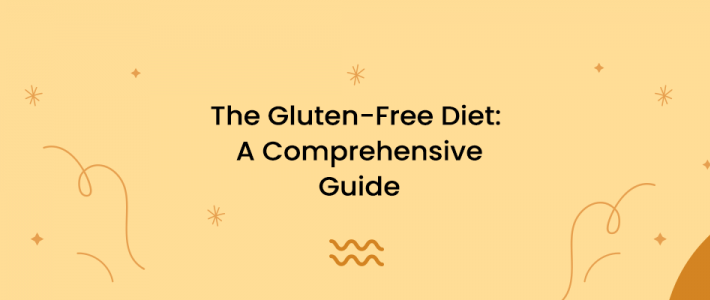
The Gluten-Free Diet: A Comprehensive Guide
Are you curious about a gluten-free diet? www.josephglutenfree.com This comprehensive guide explains what a gluten-free diet is, who it's for, and the potential health benefits.
A gluten-free diet has become increasingly popular in recent years, but many people still have questions about what it is and who it's for. In this comprehensive guide, we'll explore what a gluten-free diet is, who it's for, and the potential health benefits.
What is a Gluten-Free Diet?
A gluten-free diet is a diet that excludes gluten, a protein found in wheat, barley, and rye. For people with celiac disease or gluten intolerance, eating gluten can cause inflammation and damage to the small intestine, leading to a range of symptoms and health problems. www.josephglutenfree.com
Who is a Gluten-Free Diet For?
A gluten-free diet is primarily for people with celiac disease or gluten intolerance. Celiac disease is an autoimmune disorder in which eating gluten causes damage to the small intestine, leading to a range of symptoms, including diarrhea, abdominal pain, and malnutrition. Gluten intolerance is a less severe condition in which eating gluten causes discomfort, but without the same intestinal damage as celiac disease.
In addition to people with celiac disease or gluten intolerance, some people may choose to follow a gluten-free diet for other reasons, such as weight loss or improved digestive health.
Foods to Avoid on a Gluten-Free Diet:
On a gluten-free diet, it is important to avoid all foods that contain gluten.
- Wheat, including all forms of wheat, such as spelt, kamut, and durum
- Barley, including malt and malt vinegar
- Rye
- Triticale, a hybrid of wheat and rye
In addition to these grains, it is important to avoid any foods that contain them, such as bread, pasta, cereal, and baked goods. It is also important to read labels carefully and avoid any foods that may contain hidden sources of gluten, such as sauces, soups, and dressings.
Foods to Eat on a Gluten-Free Diet:
There are many foods that are naturally gluten-free and can be enjoyed on a gluten-free diet, including:
- Fruits and vegetables
- Lean proteins, such as meat, poultry, fish, and eggs
- Gluten-free grains, such as rice, quinoa, corn, and oats (as long as they are labeled gluten-free)
- Nuts and seeds
- Dairy products, as long as they do not contain added ingredients that may contain gluten
Potential Health Benefits of a Gluten-Free Diet:
In addition to managing symptoms of celiac disease and gluten intolerance, a gluten-free diet may offer other health benefits, including:
- Improved Digestive Health: A gluten-free www.josephglutenfree.com diet can help to reduce inflammation and damage in the digestive tract, leading to improved digestive health and nutrient absorption.
- Weight Loss: Some people may experience weight loss on a gluten-free diet, especially if they are eliminating processed foods that contain gluten.
- Improved Mood and Energy: Some people report improved mood and energy levels when following a gluten-free diet.
Conclusion:
A gluten-free diet is a diet that excludes gluten, a protein found in wheat, barley, and rye. It is primarily for people with celiac disease or gluten intolerance, but some people may choose to follow it for other reasons. By eliminating gluten from the diet, people can reduce inflammation and damage in the digestive tract, leading to improved digestive health, nutrient absorption, and overall well-being. If you're considering a gluten-free diet, talk to your doctor or a registered dietitian to ensure that you are meeting your nutritional needs and getting the most www.josephglutenfree.com
46 Comment(s)
1
1
1
1
1
1
1
1
1
1
1
1
1
1
1
1
1
1
1
1
1
1
1
1
1
1
1
1
1
1
1
1
1
1
1
1
1
1
1
1
1
1
1
1
1
1
1
1
1
1
1
1
1
1
1
1
1
1
1
1
1
1
1
1
1
1
1
1
1
1
1
1
1
1
1
1
1
1
1
1
1
1
1
1
1
1
1
1
1
1
1
1
1
1
1
1
1
1
1
1
1
1
1
1
1
1
1
1
1
1
1
1
1
1
1
1
1
1
1
1
1
1
1
1
1
1
1
1
1
1
1
1
1
1
1
1
1
1
1
1
1
1
1
1
1
1
1
1
1
1
1
1
1
1
1
1
1
1
1
1
1
1
1
1
1
1
1
1
1
1
1
1
1
1
1
1
1
1
Leave a Comment